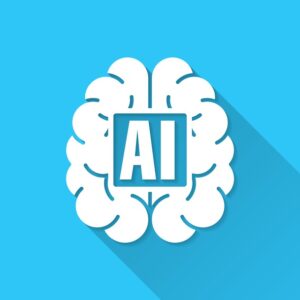The landscape of education is undergoing a seismic shift, one that intertwines traditional learning methods with groundbreaking technological advancements. At the forefront of this revolution is artificial intelligence (AI), a tool that’s not just transforming how we teach and learn but also reshaping the very fabric of educational experiences. AI is becoming an integral part of the educational sector, and what the future might hold for this exciting symbiosis.
AI’s most significant impact on education is its ability to personalize learning. Traditional educational models often adopt a one-size-fits-all approach, which can overlook individual learning needs. With its ability to analyze vast amounts of data, AI can tailor educational content to suit each student’s unique learning pace, style, and preferences. This personalization ensures that learning is more engaging, effective, and inclusive.
AI streamlines administrative tasks and assessments, allowing educators to focus more on teaching and less on paperwork. Automated grading of quizzes and assignments, especially in subjects with objective answers like math and science, frees up valuable time for teachers. AI can analyze these assessment results to identify trends and gaps in learning, providing educators with insights to enhance their teaching strategies.
Integrating AI into educational tools and platforms creates more interactive and immersive learning experiences. AI-driven simulations and virtual reality environments can transport students to different eras, places, or even inside the human body, providing a depth of understanding that traditional textbooks cannot match. These technologies make learning more engaging and can spark a lifelong love for learning.
AI has the potential to democratize education. By providing access to quality learning materials and personalized instruction through AI-driven platforms, students in remote or under-resourced areas can receive an education that was previously out of reach. This technology can bridge the educational divide, ensuring that geographical and socio-economic barriers do not impede access to quality education.
As the world evolves, so do the skills required to navigate it. AI in education can prepare students for future challenges by teaching them how to interact with and command technology. AI can also introduce students to complex problem-solving scenarios, enhancing their analytical and critical thinking skills, which are crucial in a tech-driven world.
The fusion of AI with education is not just a fleeting trend but a cornerstone of the future of education. It promises a world where learning is more personalized, efficient, engaging, and accessible. As we stand on the brink of this new era, it is crucial for educators, policymakers, and technologists to work together to harness the power of AI, ensuring it is used ethically and effectively to enrich the educational experiences of learners around the globe.
The future of education is not just about technology; it’s about using technology to unlock human potential in ways we’ve only just begun to explore.
One day, humans will explore the galaxy in manned spacecraft. We must prepare future learners for a new era supporting human advancement.
By: Rod Clarkson, December 24th 2023
